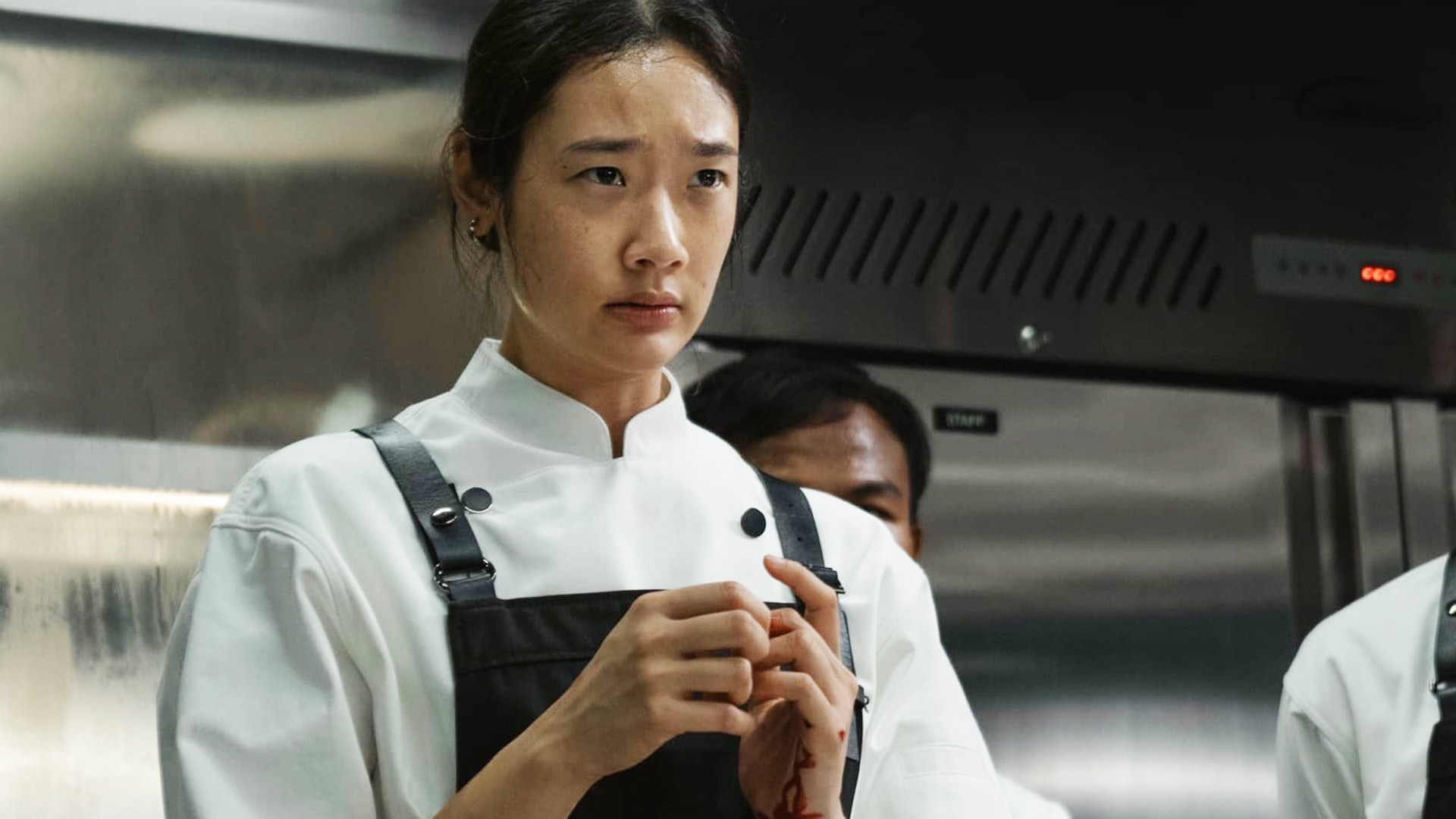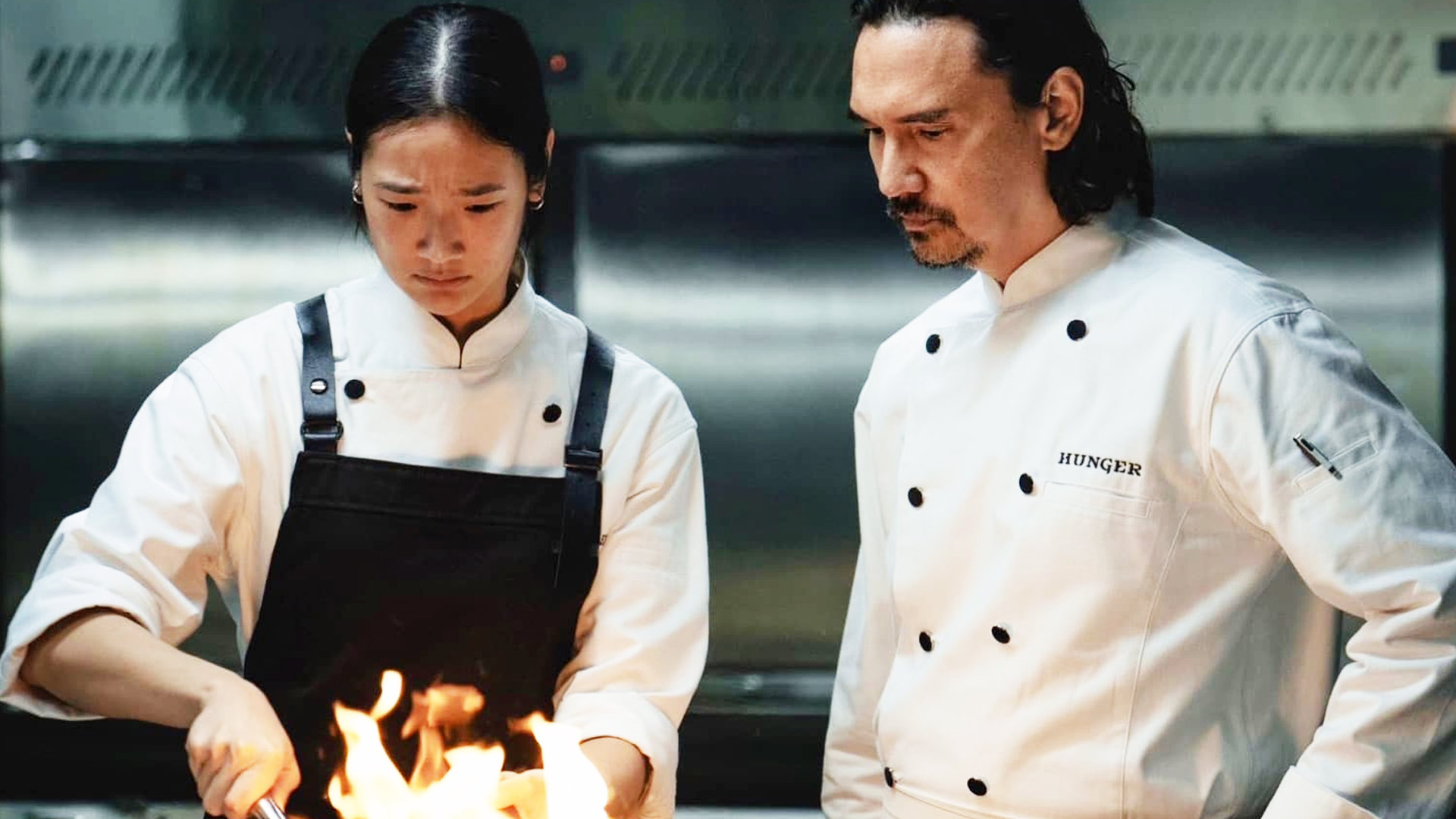Hunger will satisfy your appetite for psycho chef drama

Netflix’s popular Thai drama Hunger serves up another cinematic meal of tasty dishes and high stakes cooking. Tyrannical chefs are having a moment in the zeitgeist, writes Luke Buckmaster.
Why are fine dining chefs always such nice people? So gentle, so emotionally intelligent, so benevolent in spirit? I kid, I kid: Thai drama Hunger is the latest film to present superstar chefs as reincarnated forms of the drill sergeant from Full Metal Jacket. It arrives not long after The Menu helped cement culinary artistes as a flavour du jour in the zeitgeist, with Ralph Fiennes playing the maniacal Chef Slowik, who wants to send his well-heeled clientele to hell with hors d’oeuvre in hand.
But is Chef Paul (Nopachai Jayanama), the head honcho in Hunger, as much of a cold-blooded monster? Chef Paul certainly pisses off his staff, who aren’t nearly as compliant as Fienne’s cult-like kitchen crew. But director Sittisiri Mongkolsiri tosses around the idea that deep down he might actually be decent, or at least not profoundly evil, in addition to being a bit of a psycho.
Mongkolsiri opens with the default, go-to imagery for films about food: eye-watering close-ups of knives slicing into various ingredients. Soon we see the chef prepare an elaborate fish dish he presents on a rock. He stands before it, addressing his clientele, like Slowik showing a penchant for abstract pseudo profundities, declaring: “winners are always the ones who hunger the most.”
Initially this line makes no sense, because the film is yet to unveil the title’s double meaning: hunger also referring to a ravenous desire to succeed. Mongkolsiri then moves to a starkly different setting: a ramshackle noodle restaurant with pots and pans everywhere and faded paint on the wall. This is where the talented protagonist Aoy (Chutimon Chuengcharoensukying) toils away, the heir apparent of the family business, her destiny seemingly mapped out in the pad see ew. One customer, Tone (Gunn Svasti), who is a cook for Chef Paul, tells her “you’re too good to be working here” and believes she has what it takes to be the rockstar foodie’s new recruit.

Writer Kongdej Jaturanrasamee taps into a common human hope: that a person’s true talents will one day be recognised, creating pathways to success. Jaturanrasamee doesn’t pussyfoot around by pretending Aoy has a choice: we know she’ll rise to the challenge and enter the lion’s den. It’d be a crap story if she didn’t. Her first task is to prepare a modest dish for Chef Paul: fried rice and egg. She competes against a culinary school graduate whose dish looks much more ‘grammable, but this guy, desperate to impress, is condemned by Chef Paul for being one of “those classically trained idiots” with “no imagination.”
Films about fine dining often take swings against the snobbishness and exclusivity associated with the industry, sometimes finding comfort in the idea of returning to one’s roots. In The Menu, the humble cheeseburger represented purity; in Ratatouille it was the eponymous dish, once a food for peasants. In Hunger it’s a matter of trajectory: the narrative ultimately isn’t about Chef Paul, or even somebody working for him: it’s the story of Aoy pursuing her own version of greatness. This is a safe and conventional model, light years from the Grand Guignol spectacle of The Menu, albeit with plenty of “tough taskmaker” moments to provide some sizzle.
Another of Aoy’s early tasks is to slice chunks of beef while Chef Paul stands next to her, breathing down her neck, telling her it’s too thick, still too thick, don’t saw it, I told you not to saw it, and so forth. Domineering chefs are fun to watch, but Nopachai Jayanama’s performance stops just shy of entering the domain of the truly dastardly. Chef Paul even gets an origins scene combining class commentary with formative inspiration, prompting the question of whether psychotic aspects of his personality are products of a broken system. Chutimon Chuengcharoensukying is a modest and likeable lead, wrapping an aura of decency around cold hard determination.
Visually Hunger is unadventurous, with lots of plain mid-shots, the equivalent of an unembellished garden salad. Where’s the fancy drizzle, the artisanal aesthetic? A film that makes a point about the importance of presentation and showmanship might have heeded its own advice. Under the hood there’s not much either, thematically speaking, with just a whiff of capitalistic commentary in its pondering of whether things are expensive because they’re special, or special because they’re expensive. Plus the 130 minute runtime is too long, lacking tightness and rigor. And yet the film coasts along quite well—never exceptional but never poorly made. Your appetite for psycho chef drama will be satisfied.


















